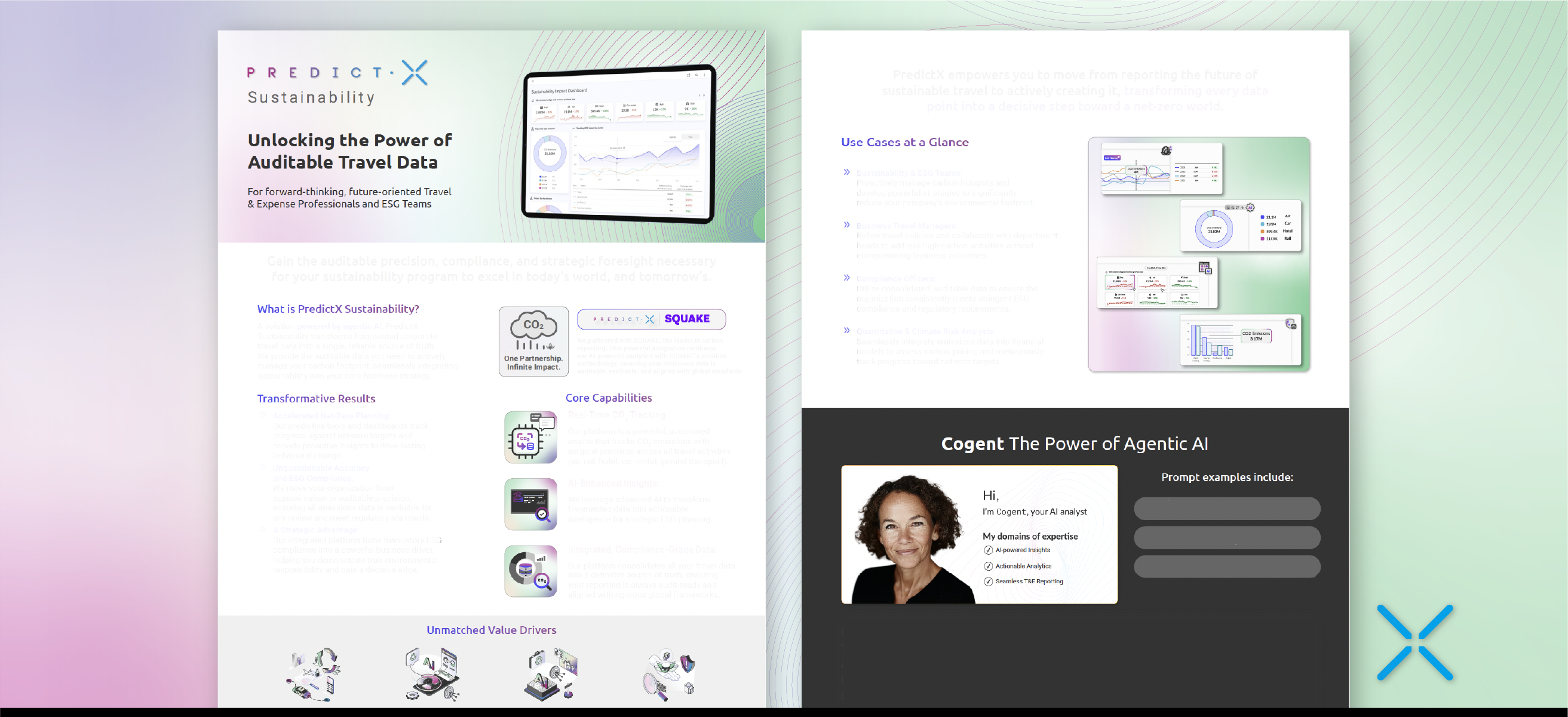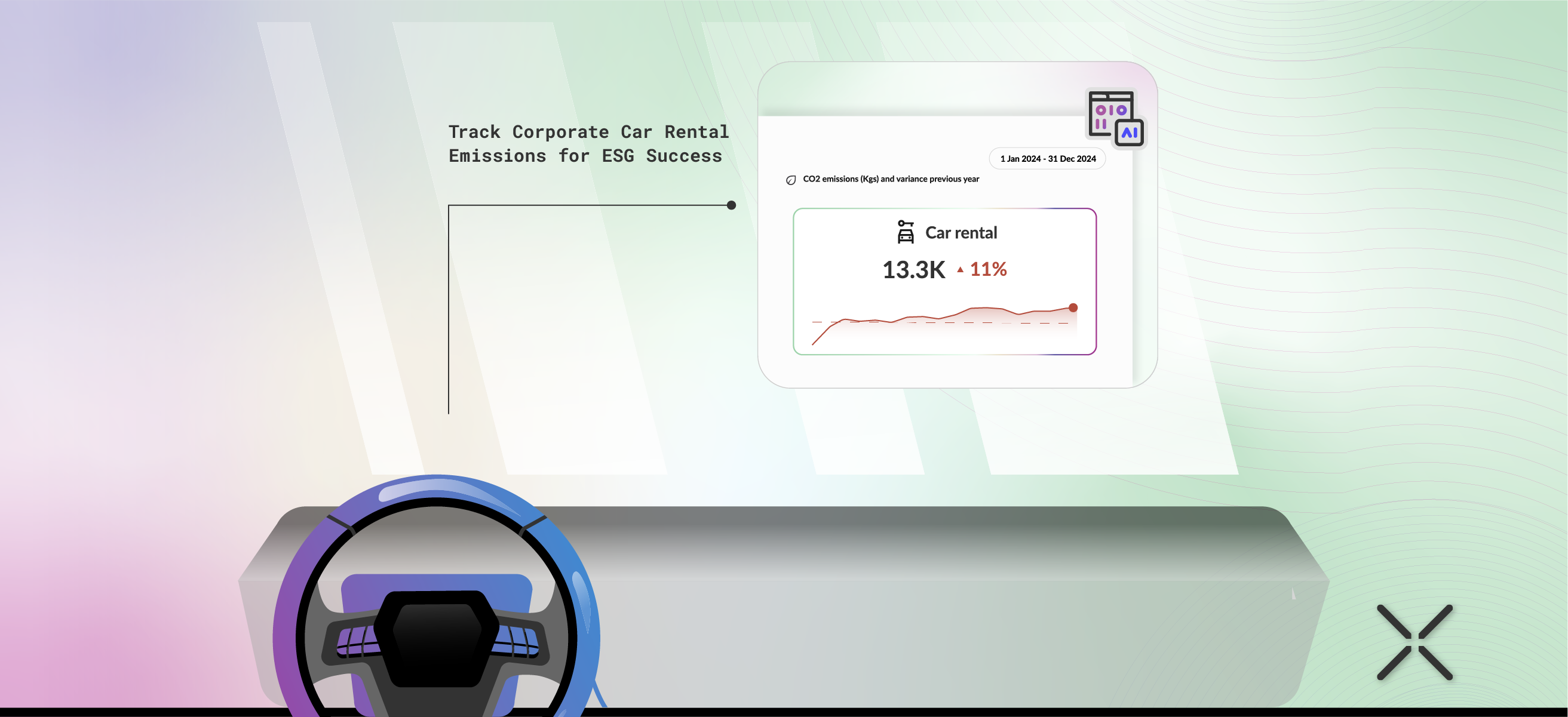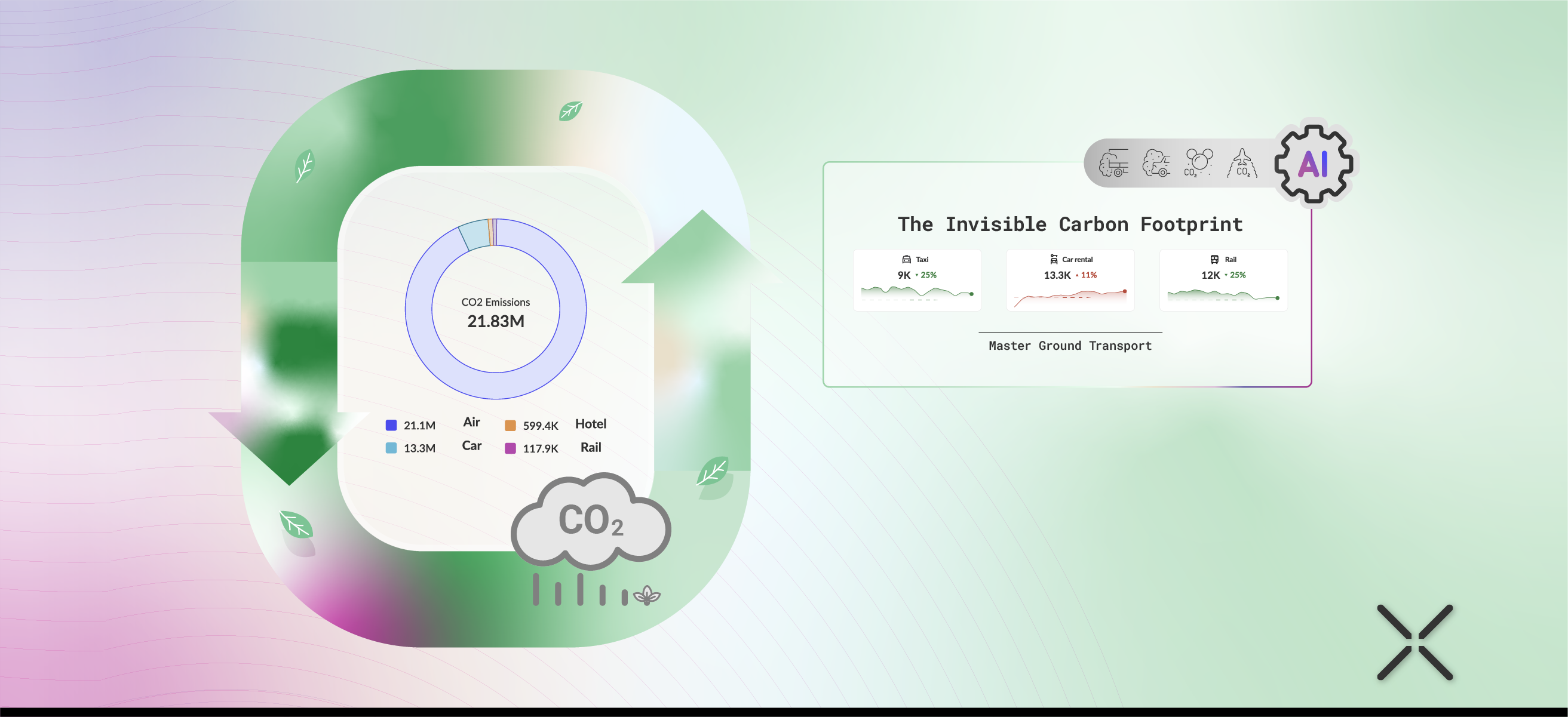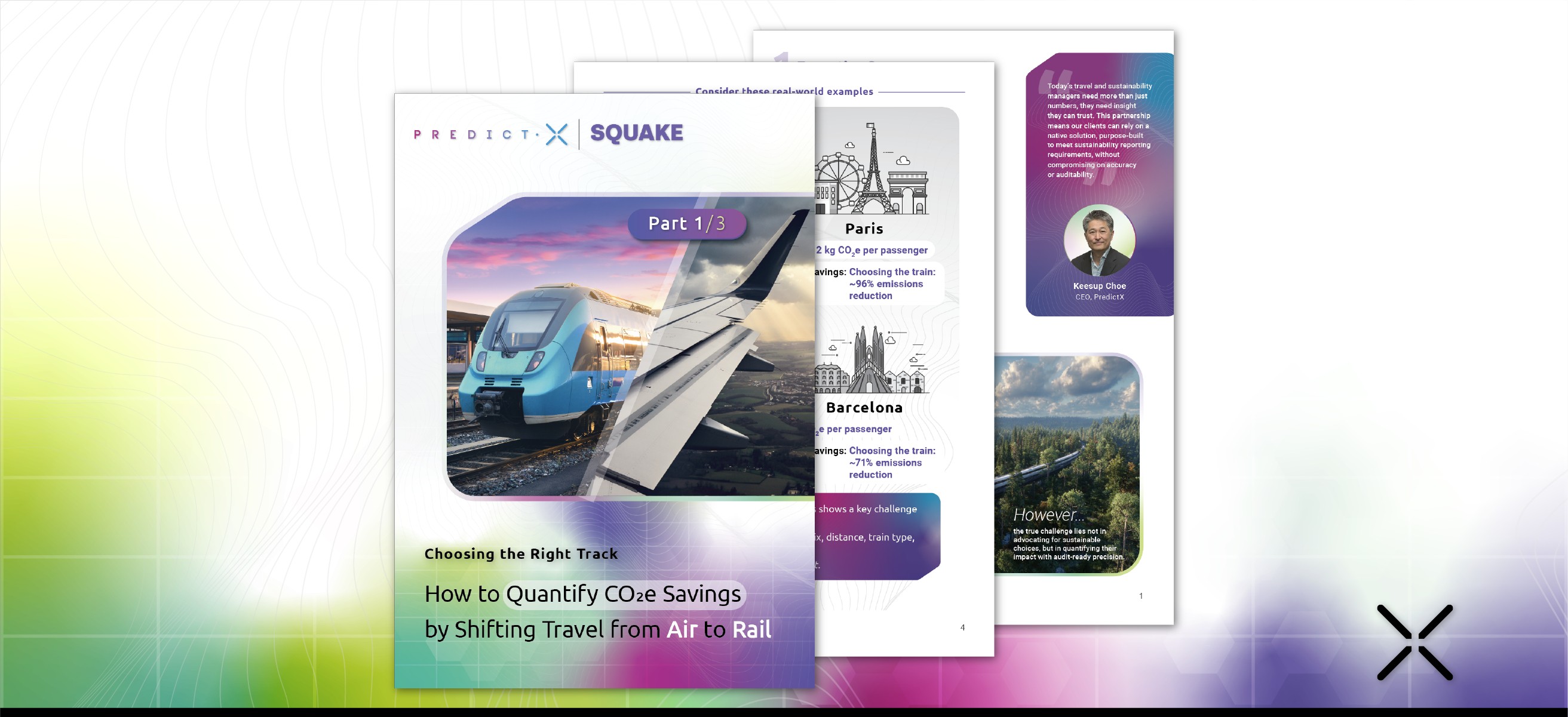As businesses around the world ramp up corporate travel, the focus is shifting towards sustainability. Many organizations are setting ambitious net zero targets, making it crucial to manage and reduce travel-related carbon emissions. However, tracking these emissions can be complex, especially when travel data is fragmented and difficult to consolidate. This is where artificial intelligence (AI) steps in, offering powerful tools to track, analyze, and reduce travel emissions more effectively.
PredictX, through our AI-powered data analytics platform, enables companies to gain an accurate understanding of their travel-related carbon footprint. By automating data gathering and analysis, PredictX makes it easier to identify emission hotspots and find ways to travel more sustainably.
“A good analogy of how PredictX works is like a wastewater treatment plant, but instead of cleaning dirty water, we clean fragmented and inaccurate data,” says Keesup Choe, CEO of PredictX. “Without clean, accurate data, any calculations or insights you derive will be misleading.”
The Challenges of Tracking Emissions
Tracking travel emissions is a complicated task. Travel data comes from various sources—travel management companies, airlines, hotels, and expense systems—all using different formats and metrics. This lack of standardization makes it difficult for businesses to get a clear picture of their carbon impact.
When PredictX entered the corporate travel space, many companies couldn’t answer basic questions about their travel expenses, let alone accurately track carbon emissions. AI-powered platforms like PredictX solve this issue by consolidating fragmented data, cleaning it, and offering precise insights. As a result, companies can track emissions more effectively and find opportunities to cut down their environmental impact.
AI-Driven Data Insights for Sustainable Travel
With PredictX, businesses can move beyond outdated annual reporting and instead shift to real-time monitoring of their travel emissions. By using AI to analyze travel data as it’s generated, companies receive instant feedback, allowing them to make timely, informed decisions.
“Instant feedback is critical for sustainability,” says Choe. “If you’re only looking at your emissions once a year, it’s impossible to implement meaningful changes. AI provides the real-time insights needed to drive sustainable travel decisions.”
For example, the PredictX platform can alert employees to more sustainable travel options while they are booking, such as choosing a direct flight instead of a connecting one, or opting for an eco-certified hotel. This kind of proactive, AI-driven nudge helps employees make climate-conscious choices without having to sift through complex data.
Engaging Employees in the Sustainability Journey
An important aspect of reducing travel emissions is engaging employees to actively participate in sustainability efforts. PredictX’s AI-powered platform sends reminders and suggestions directly to employees during the travel booking process, making it easy for them to choose options with a lower carbon footprint.
"Education and timely nudges are key to driving sustainable behavior," explains Choe. "By influencing travel decisions in real time, we can make sustainability an integral part of the booking process."
Furthermore, providing relatable data is essential. Instead of simply presenting carbon emissions as abstract numbers, businesses can contextualize the information. For example, telling employees that their flight produces the same emissions as a household’s energy use for a year is more impactful than stating the trip generates two tons of CO2.
Some companies are even introducing gamification, rewarding teams that achieve the lowest emissions during a certain period. This approach not only engages employees but also creates a culture of sustainability within the organization.
AI for Future Planning and Emission Reduction
Looking beyond real-time tracking, AI offers companies the ability to forecast and simulate the carbon footprint of future travel. PredictX’s platform, for example, allows businesses to simulate the environmental impact of conferences, product launches, or other major events. It can analyze different cities and venues, calculating which option has the lowest emissions based on factors like energy use, transportation options, and sustainability certifications.
"Using AI, we help companies evaluate travel decisions well in advance, so they can choose venues or options that significantly reduce their carbon footprint," Choe explains. “This is the future of travel management—optimizing not just for cost, but also for sustainability."
By providing predictive insights, AI allows companies to take proactive measures, making smarter decisions about business travel before emissions are even generated.
PredictX is revolutionizing the way companies track and reduce travel-related emissions. By offering real-time data analysis, personalized suggestions, and predictive tools, AI makes it easier than ever for businesses to understand their carbon footprint and take actionable steps toward sustainability.
With net zero deadlines approaching, companies can no longer afford to treat sustainability as an afterthought. Leveraging the power of AI, organizations can make smarter, more eco-friendly travel decisions—ensuring that business growth doesn’t come at the expense of the environment.
Related Posts

The Scope 3 Mandate: Why CSRD Reporting Turns Business Travel Emissions into a Boardroom Issue

Failing Audits? Get the PredictX Product Sheet: The Path to Auditable Corporate Travel Emissions

Putting Your Car Rental Emissions in the Driving Seat: A Smarter Approach to Sustainability

Beyond Flights: Your Guide to Tracking and Reducing Ground Transport Emissions

PredictX x SQUAKE: Quantifying CO₂e Savings from Air-to-Rail Modal Shift for Audit-Ready CSRD and Scope 3

Unveiling PredictX’s Internal Carbon Pricing Tool: A Transformative Leap for Business Travel Sustainability
%20(23).png)
PredictX for Sustainability
.png)
Adhering to the CSRD: Shaping the Future of Corporate Travel Sustainability with PredictX
%20(1).png)

